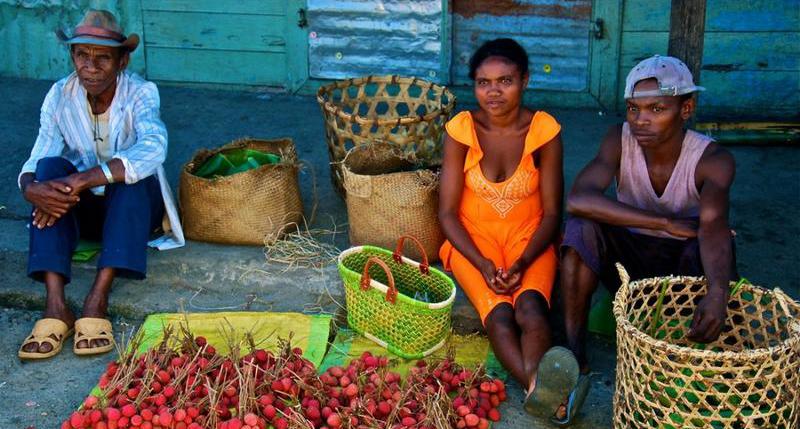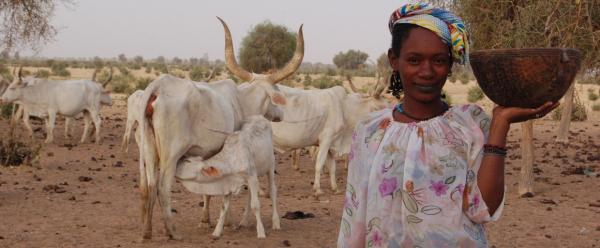Event 9 December 2025
- Home
- CIRAD news
- News
- CIRAD and the United Nations Food Systems Summit
CIRAD and its partners are working to transform food systems

Lychee sellers in Madagascar © CIRAD, E. Malézieux
Feeding almost ten billion people without exacerbating poverty, accelerating deforestation or increasing our emissions will be impossible unless we immediately implement major changes in our food systems .
As things stand, food systems are behind a third of greenhouse gas emissions and, depending on which authors one reads, between 60 and 80% of biodiversity losses worldwide. They also play a role in the global obesity crisis, and generate inequality in terms of wealth and income.
In the hope of changing matters, CIRAD is providing various elements to support a transformation of those systems, as part of the many consultations or debates under way on various levels in the run-up to the UN Summit due to be held in New York in September. This means involving its scientists in the debate with society and policymakers.
In the countries and regions of Africa, Asia and Latin America in which CIRAD works, our researchers and their partners are playing an active part in the national consultations organized by governments and UN bodies. Their contributions centre in particular on the work done within the following platforms in partnership for research and training: MALICA, ISA, GoVInn and PPZS. The knowledge built up over several decades, updated by more recent diagnostic operations, is much appreciated by policymakers and other stakeholders in the various round tables at which the various options for change are the object of fierce debate.
CIRAD is organizing the following events:
Coming up
Territorial governance for sustainable food systems
23 July, 14:00 - 15:30 CEST
Parallel session, organized ahead of the pre-summit, by the OECD and the Global Alliance for the Territorial Governance for Sustainable Food Systems, of which CIRAD is a member.
More info and registrationBonding science and policy to accelerate food systems transformation
27 July, 19:30 - 20:20 CEST
A parallel session, organized at the pre-summit, following on from the high-level webinar organized by CIRAD on 4 February. The webinar was aimed at fostering science-policy interfaces to support the summit, with a call for "business as UNusual", to accelerate the transformation of food systems .
To register for the pre-summit and attend the event, click here
Summary of the high-level webinar held on 4 FebruaryPast events
Priorities for inclusive food systems transformations in the global South
6 July
Round table, organized at the Science Days, by CIRAD and the Vietnam Academy of Agriculture Sciences, in collaboration with the RUAF Global Partnership on Sustainable Urban Agriculture and Food Systems, Michigan State University, the Centre national de la recherche scientifique et technologique in Burkina Faso and the UNESCO Chair in World Food Systems.
Find out moreTerritorial governance for sustainable food systems
8 July, on line
A consultation organized by CIRAD, the UNESCO Chair in Food, Biodiversity and Sustainability Studies, and Wilfried Laurier University.
Find out moreGeographical indications for a territorial approach to the SDGs
27 May
A consultation organized by CIRAD and FAO, which brought together around a hundred participants from five continents.
Find out more Read the summary of the dialogueThe UN Summit, to be held in New York in September, is a vast global discussion around the issue of food systems. It aims to propose concrete solutions for their transformation.
It centres around five action tracks:
1. Ensure access to safe and nutritious food for all
2. Shift to sustainable consumption patterns
3. Boost nature-positive production
4. Advance equitable livelihoods
5. Build resilience to vulnerabilities, shocks and stress
It also takes the form of several hundred national and global consultations and independent consultations or "dialogues", of which almost 700 have already taken place.



























